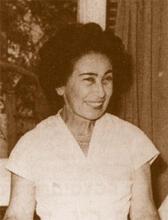Athaliah: Bible
"Athaliah Interrogating Joas," by Charles-Antoine Coypel, 1741. From the Brest Museum of Fine Arts via Wikimedia Commons.
Queen Athaliah is the only woman in the Hebrew Bible reported as having reigned as a monarch within Israel/Judah. After her son’s brief rule, she kills the remaining members of the dynasty and reigns for six years, when she is overthrown. She is viewed negatively in scripture, which describes her actions as wicked, and her ability to harness power is not mentioned.
Article
Queen Athaliah is the only woman in the Hebrew Bible reported as having reigned as a monarch within Israel/Judah. She is the daughter of either Omri, king of Israel (2 Kgs 8:26; 2 Chr 22:2), or, more probably, of his son King Ahab (2 Kgs 8:18; 2 Chr 21:6; the Jewish historian Josephus cites this in Antiquities), who ruled from 873 to 852 b.c.e. There is no evidence that she was the daughter of Ahab’s chief wife, Jezebel. Athaliah married Jehoram (reigned 851–843 B.C.E.) of Judah (2 Kgs 8:18; 2 Chr 21:6). After Jehoram’s death, their son Ahaziah reigned for one year, and “his mother was his counselor in doing wickedly” (2 Chr 22:3).
After Ahaziah is killed in a dynastic struggle (2 Kings 9), Athaliah sets out to kill the rest of the royal dynasty and seizes the throne of Judah in Jerusalem (2 Kings 9; 2 Chr 22:10–23:21). She manages to remain sole monarch for six years (842–836 B.C.E.). In the seventh year a revolution led by Jehoiada the priest puts on the throne the seven-year-old Joash, Ahaziah’s child who was rescued by his paternal aunt (and Jehoiada’s wife) Jehosheba from the royal bloodbath six years earlier. The overthrow takes place in the Jerusalem temple. Athaliah is killed in what she terms “treason” (2 Kgs 11:14; 2 Chr 23:13) against her reign.
The biblical evaluation of her rule is negative. Both 2 Kings 11 and 1 Chronicles (especially chap. 24) connect Athaliah with Baal worship, even though her name contains the theophoric element yah[u] (yhwh), like the names of other figures in the story. The priestly objection to her could also be motivated by hatred for a non-Davidic ruler and, particularly, a woman ruler. However, that she managed to sustain her reign for six years can be attributed to her successful use of various sources of power: her royal origins and connections, involvement in her husband’s and son’s reigns, economic independence, personal ability, and political knowledge—all of which are not mentioned, apart from notes on her wicked influence on her husband and son.
Brenner, Athalya. “Athaliah.” In The Israelite Woman: Social Role and Literary Type in Biblical Narrative. Sheffield, England: 1985; 28–31.
Brewer-Boydston, Ginny. "Good queen mothers, bad queen mothers: the theological presentation of the queen mother in 1 and 2 Kings." PhD diss., 2011.
Katzenstein, Hanna J. “Who Were the Parents of Athaliah?” Israel Exploration Journal 5 (1955): 194–197.
Klein, Reuven Chaim. “Queen Athaliah: the daughter of Ahab or Omri?” Jewish Bible Quarterly 42, no.1 (2014): 11-20.
Macwilliam, Stuart. “Athaliah: A Case of Illicit Masculinity.” In Biblical Masculinities Foregrounded. Edited by Ovidiu Creanga and Peter-Ben Smit, 69-85. Sheffield Phoenix Press, 2014.
Sergi, Omer. “Queenship in Judah revisted: Athaliah and the Davidic dynasty in historical persepective” Tabou et transgressions (2015): 99-112.
Women in Scripture. Edited by Carol Meyers. New York: 2000.











